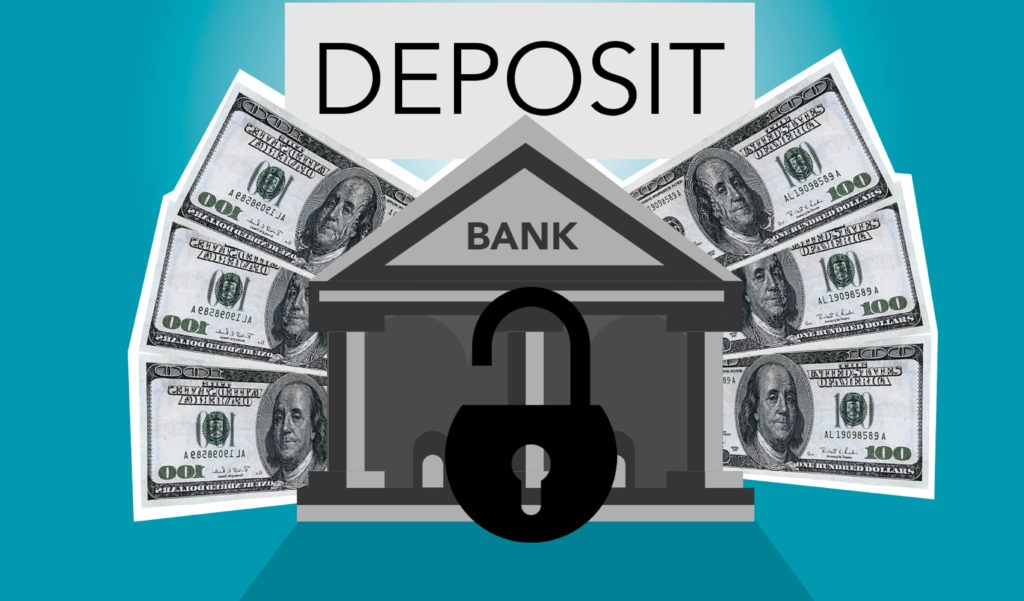
We have written recently about how to write a business plan for investors and different ways to finance your business, but none of that’s any good unless you have somewhere to put your cash. The bank account you have can have a significant impact on your company’s finances and functionality, whether it relates to cash withdrawals, your overdraft terms or interest rates. So, what is the best business bank account to use?
What is a Business Bank Account?
It’s worth beginning with the basics – what is a business bank account? What makes it different from your personal bank account? A business bank account is a bank account that’s used only for business transactions rather than personal finances. In some circumstances you could use a personal bank account to do that, but the banks themselves treat business accounts a little differently. The main difference that you will notice between personal and business bank accounts is that business accounts usually charge monthly fees, as well as a range of fees for certain transactions. Lots of banks offer an initial fee-free period though, so it’s worth shopping around. There are benefits to a business bank account however, especially for those who have their eyes firmly on growing a successful enterprise. For example:
- It allows you to accept credit card payments
- Your business will look more professional
- Tax preparation is made easier/paying your tax return
- claiming expenses
- It helps with liability and identity protection
Does a Sole Trader Need a Business Bank Account?
First of all, you need to consider whether you need a business account at all. For example, if you’re a sole trader, is it necessary? It’s not a legal requirement to have a business account, so if you’re a freelancer or self-employed tutor, for example and you have not set up a separate business entity, then you don’t have to have a business account.
The reason you might choose not to open a business bank account is that they often tend to have (small) admin fees attached to them, or you might simply not want to complicate things with more accounts in your name. However, having one does help to keep things tidy when separating business costs from personal ones and staying on top of payments.
On a more pressing note, there are points where it may become administratively necessary to open a business bank account. For example, in the UK it’s now a legal requirement that VAT Returns are done digitally through platforms like Xero. Those platforms link to your bank and are usually not compatible with personal accounts, so if you reach a point where you need to become VAT registered, then you might find you have to get a business bank account. In the UK, the VAT registration threshold is currently £85,000.
When Do You Need a Business Bank Account?
There are certain situations in which you are legally required to have a business bank account. This relates to the structure of your business. If your business is operating as a separate legal entity from the owner, it needs a business bank account. For example, if it’s a limited liability company (LLC), limited liability partnership (LLP) or a corporation.
Which Type of Bank Account is Best for Business?
All major banks offer business bank account options, and in many ways their range of services are very similar, but variations such as bank charges and compatibility with accounting software may differ, so it’s worth doing your research before committing.
Broadly speaking, there are six different types of business bank account:
- Business checking accounts
- Business savings accounts
- Business certificates of deposits (CD) accounts
- Merchant accounts
- Business money market accounts (MMAs)
- Foreign currency accounts
The most versatile and widely used type of business bank account is a business checking account, which allows you to deposit, withdraw and transfer funds easily. This is the best type of business bank account for you to begin with and then if you need additional services as your company grows then you can look to add them.
Which Bank in the UK is Best for Business Accounts?
In the UK the leading UK banks are:
- HSBC Holdings
- Lloyds Banking Group
- Royal Bank of Scotland Group
- Barclays
- Standard Chartered
- Santander UK
- Nationwide Building Society
- Schroders
Broadly speaking, you won’t go wrong working with any of the leading banks when it comes to setting up your business bank account – it’s always worth going to a reputable name.
That said, when Forbes did a review of the best business bank accounts in March 2023, based on the affordability of their fee structures, whether they offer an overdraft, and whether they offer business-forward functionalities such as invoice generation, they ranked specific accounts as follows:
- Virgin Money M Account for Business
- Cashplus Bank Business Go
- Revolut Business
- Mettle By NatWest
- HSBC Kinetic
- ANNA Money Business Account
- Tide Business Bank Account
- Monzo Business Lite Account
Is Monzo or Starling Better for Business Accounts?
Amongst the most popular business bank accounts today however are Monzo and Starling. Both are award-winning and are often referred to as digital challenger banks or neobanks. Both are UK based and app-based, appealing to a modern demographic. Other key attributes include their capacity for international payments and no limits on withdrawing cash abroad fee-free, however they don’t have bricks and mortar branches so everything is managed digitally.
Which is best? It really depends on how you view it and what you want. Customers voted Monzo the 2022 Best Business Banking Provider (British Bank Awards), while Starling Bank won the award for Best Current Account for the fifth year in a row. So take your pick.
Top Non-banking Platforms
Although leading banks come with a reputation of security they can also be slow and laborious when it comes to opening bank accounts and providing other services like loans. For those who want less red tape and faster action when it comes to setting up bank accounts however, there’s a variety of non-banking platforms and money services providers available, from app-based options to payment services providers (PSPs).
In particular we have seen the rise of platforms in recent years that leverage the benefits of technology for tech-savvy entrepreneurs.
Top non-banking platforms include:
- Revolut: Revolut is a British-Lithuanian neobank and financial technology company, which offers accounts with a variety of services. For businesses, benefits include he ability to hold, receive and exchange more than 30 currencies.
- Wise: Wise is a digital bank known for providing cheap international bank transfers at great exchange rates. It’s not a bank but it is authorised by the Financial Conduct Authority (FCA) under the 2011 Electronic Money Regulations.
- Cashplus: Cashplus is an app-based bank that only operates online. It provides credit cards, personal accounts and business accounts and is known as an innovator when it comes to banking.
What is a PSP?
PSPs are amongst the most popular bank alternatives for business owners. A PSP is a third party company that allows businesses to accept electronic payments similarly to certain business bank accounts. For example, via credit card, debit card, e-wallets, or bank transfer. They are an intermediary between your business and your customer and are often popular with startups in particular.
They tend to operate by processing tens of thousands of businesses under one massive merchant account and by aggregating payments at volume they’re able to negotiate low processing rates with the banks. You and your business then benefit from that process, as bit enables them to pass the following benefits onto you:
- Almost immediate account approval
- Low or no monthly costs
- An economical flat-rate processing fees
- Seamlessly integrated point-of-sale (POS) software, card readers and online checkouts
- They often take on the credit risks for fraud activities and chargebacks
However, because they take on the risk for fraudulent payments, they tend to prohibit high-risk sales activities and have a higher rate of account holds and freezes than standard merchant accounts. They also typically have a sales threshold of around $250,000 in annual payments making them less suitable for larger businesses.
Examples of PSPs include:
- Square
- Stripe
- Shopify Payments
- Amazon Pay
- PayPal

What is a Neobank?
A neobank is a relatively new phenomenon in the world of fintech, and much like a PSP, it tends to partner with a conventional bank and offer certain benefits to individuals and businesses. Typically, much like other PSPs, neobanks have lower fees and more competitive rates than traditional banks because of the way they’re structured – they tend to provide internet-only banking services, but they do charge interchange fees when customers use credit or debit cards to make purchases. A combination of lower overheads and this structure are the way they make money and pass competitive benefits on to customers.
A recent game changer in the neobank world has been Clique bank, a banking platform designed by entrepreneurs for entrepreneurs. A Clique account markets itself as placing the business owner in control. The card is accepted at retail outlets around the world, enabling quick and convenient transactions online, via an ATM or over the phone or counter. For business owners, the benefits include:
- Multiple currencies
- instant money management
- You can view accounts, transfer funds and make payments easily
- Secure messaging
- Prompt support from their concierge team 24/7
What to Consider When Choosing a Business Bank Account?
The conclusion here is that there are lots of options for choosing a business bank account. There’s no right or wrong, although in my opinion it’s always a good idea to set up a business bank account no matter what your business size, for the sake of keeping your accounts tidy both for yourself and the tax man/woman. Setting yourself up properly will make you more appealing to potential investors and it will be easier than having to transfer everything to a new account at a later date when you reach particular tax thresholds and so forth.
So, speak to different banks, do your research and think about what’s important for you.
A quick roundup of things to consider when talking to banks:
- Service fees required (minimum balance, maintenance, overdraft, ATM or wire transfer fees)
- Introductory offers
- Services provided (loans, online banking, savings account, checking account)
- Industry experience – some banks have specific expertise with particular industries
- Scalability and growth support
- Interest rates
- Average transaction limits
- Ease of integration (with accounting software, for example)
- Fund protection and insurance
- Compatibility with different banks
- Types of banking provided
- Whether they have brick-and-mortar premises
- The quality of their mobile banking apps
Want to set up or grow your business? Perhaps you’re looking to invest in a start-up and help innovators take their ideas to the next level? Contact my team to find out how to boost or add to your business portfolio.






